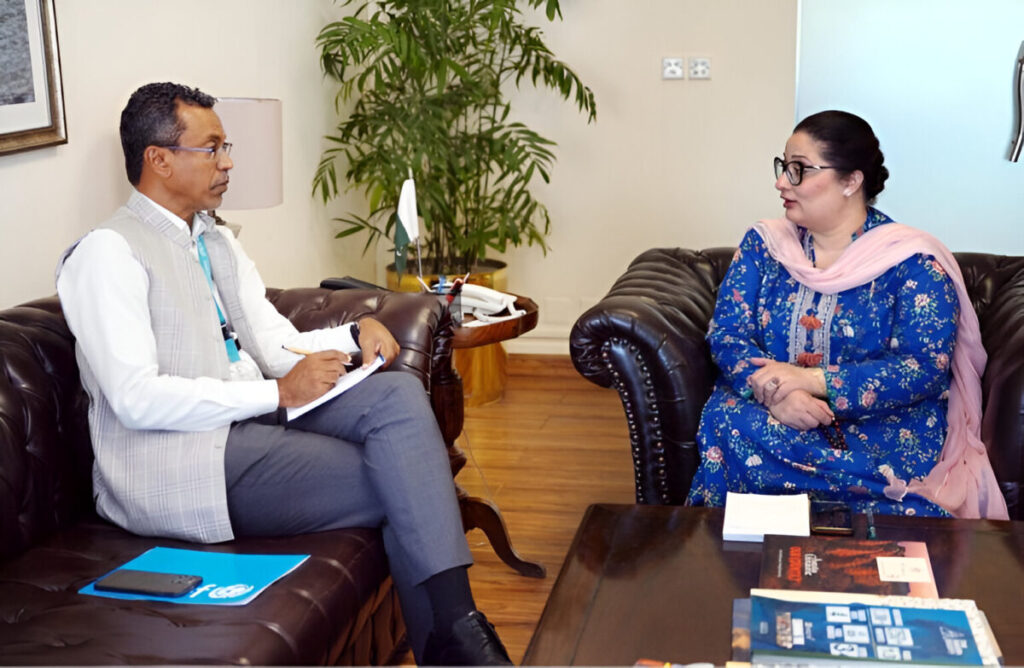Islamabad, Aug 4: Abdullah A. Fadil, a UNICEF representative in Pakistan, spoke with Romina Khurshid Alam, the prime minister’s coordinator on climate change, about strengthening cooperation in defending children against the negative effects of climate change.
According to Muhammad Saleem, spokesman for the Climate Change & Environmental Coordination Ministry, “both sides committed to work closely to protect children from the devastating consequences of climate change-caused disasters, particularly floods and diseases” during the conference held here.
The ministry source added that Romina Khurshid, the PM’s environment adviser, brought up during the meeting with the Pakistani representative of Unicef that Pakistani children are becoming more susceptible to the effects of climate change as a result of catastrophic weather events like floods,
Heat waves, droughts, floods caused by glacial lake outbursts, and changes in rainfall patterns pose a threat to their general well-being, education, and health. Romina Khurshid brought up during the meeting that children in Pakistan are becoming one of the most vulnerable groups as the world struggles with the growing risks associated with climate change. They are also facing serious consequences from various climate change-related disasters, especially heat waves and floods, according to the spokesperson, Mr. Saleem.
“Recent disasters in Pakistan brought on by climate change have shown us that the nation, which is already among the most affected worldwide, is feeling more severe effects, such as intense heat waves, flooding, and altered weather patterns. Children are disproportionately affected by these climatic disruptions because of their developing bodies and reduced potential for adaptation, making them especially susceptible to environmental changes, said Ms.Alam.
The ministry official added that in order to safeguard the future of the younger generation, it was brought up at the discussion that tackling children’s climate vulnerability requires focused efforts, especially in the areas of health, education, water, and sanitation.
The PM’s climate aide made sectoral intervention recommendations, including: constructing resilient educational facilities and putting policies in place to ensure that children’s education is not disrupted by climate events in order to ensure educational continuity; investing in healthcare infrastructure and services to address climate-induced health challenges, with a focus on maternal and child health for strengthening overall health systems.
In order to protect children under the age of 15 from the overall effects of climate change, policy measures that prioritize climate adaptation efforts in rural and low-income areas will inevitably be required. These measures include supporting mental health by offering mental health services and psychosocial support to children affected by stress and trauma related to climate change, and building resilience of vulnerable communities.
The country representative for Unicef gave the PM’s climate aide, Romina Khurshid Alam, assurances that his organization will fully support the government’s efforts to address climate vulnerability among children, both technically and non-technically.
